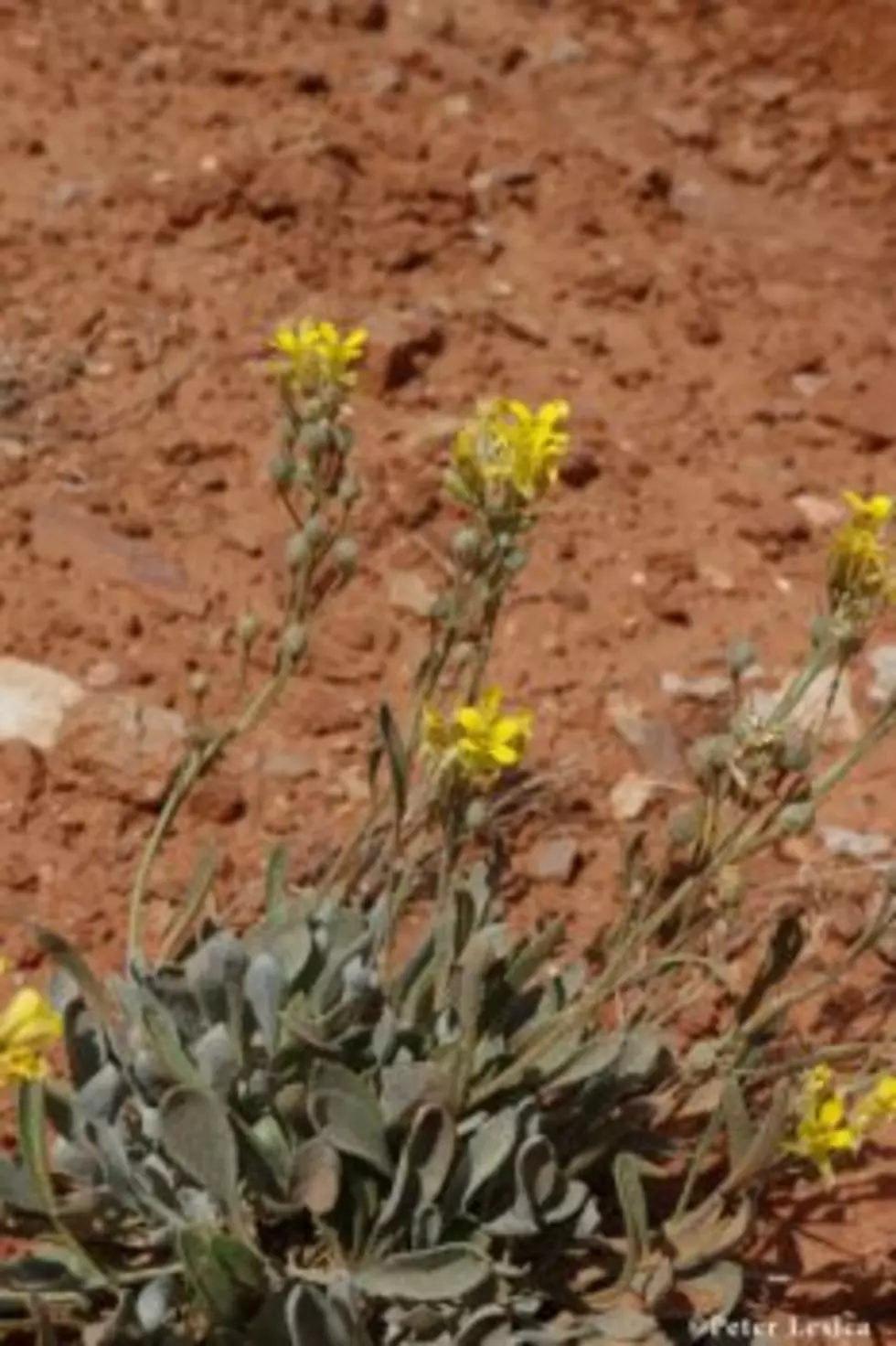
Company scraps mining plans in Pryor Mountains, possibly saving rare plant
A gypsum mining company has withdrawn its plan for exploration in the Pryor Mountains in southern Montana. That action could help save a rare plant found only that area, experts say.
But the Center for Biological Diversity has filed a notice of intent to sue to the U.S. Fish and Wildlife Service for failure to act on a recommendation that the thick-leaf bladderpod be included on a list of Endangered Species. One of the reasons the center was pressuring the federal government to act quickly was because of the proposed mining.
The thick-leaf bladderpod is small plant with bright yellow blossoms that bloom in early June. It is found only in the desert area of the Pryor Mountains in thin crusts of “cryptobiotic” soil. Scientists believe that the plant is responsible for helping to hold down the fragile, flaky soil.
Grupo Cementos de Chihuahua withdrew its plan for gypsum mining exploration in the Pryor Mountains, and the Center for Biological Diversity said the exploration would have also disturbed Jurassic period fossils, Crow and Northern Cheyenne archaeological sites and could have negatively affected the greater sage grouse.
“The scrapping of this mine is great news for the thick-leaf bladderpod and the many other wildlife species that call the Pryor Desert home, but we still need federal action,” said Kristine Akland, Northern Rockies attorney for the Center for Biological Diversity.
The proposed gypsum mining was the most clear threat to the rare plant. Any mining exploration would have disrupted or destroyed the fragile soil, possibly killing the thick-leaf bladderpod. Grupo Cementos’ withdrawn plan does not make certain the plant’s survival so the Center for Biological Diversity said it will continue to push for the plant’s listing as an Endangered Species.
In 2009, the Bureau of Land Management designated more than 2,600 acres in the Pryor Desert as “an area of critical environmental concern,” for both its biological and archaeological significance. In 2015, the agency recommended that the area be withdrawn for mineral leasing, but under the Trump administration that did not occur. The center hopes the federal government will designate the area as one of critical concern or have the bladderpod listed as endangered.
“Mining projects could lead to the extinction of the thick-lead bladderpod,” according to a news release.
